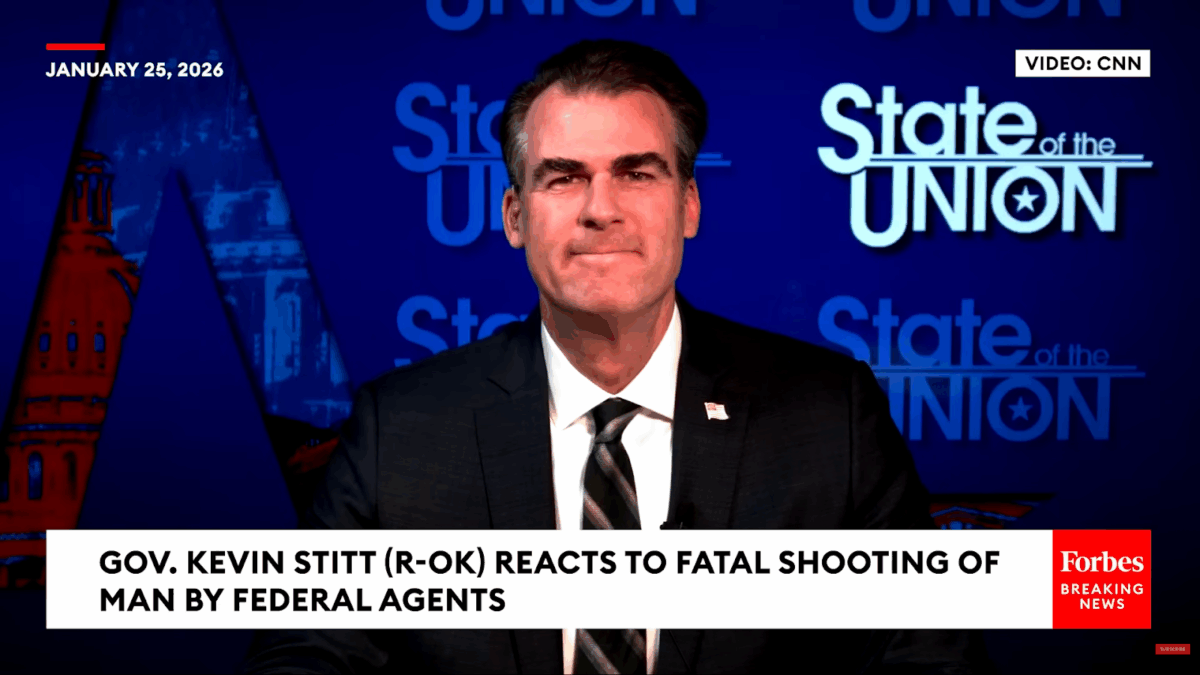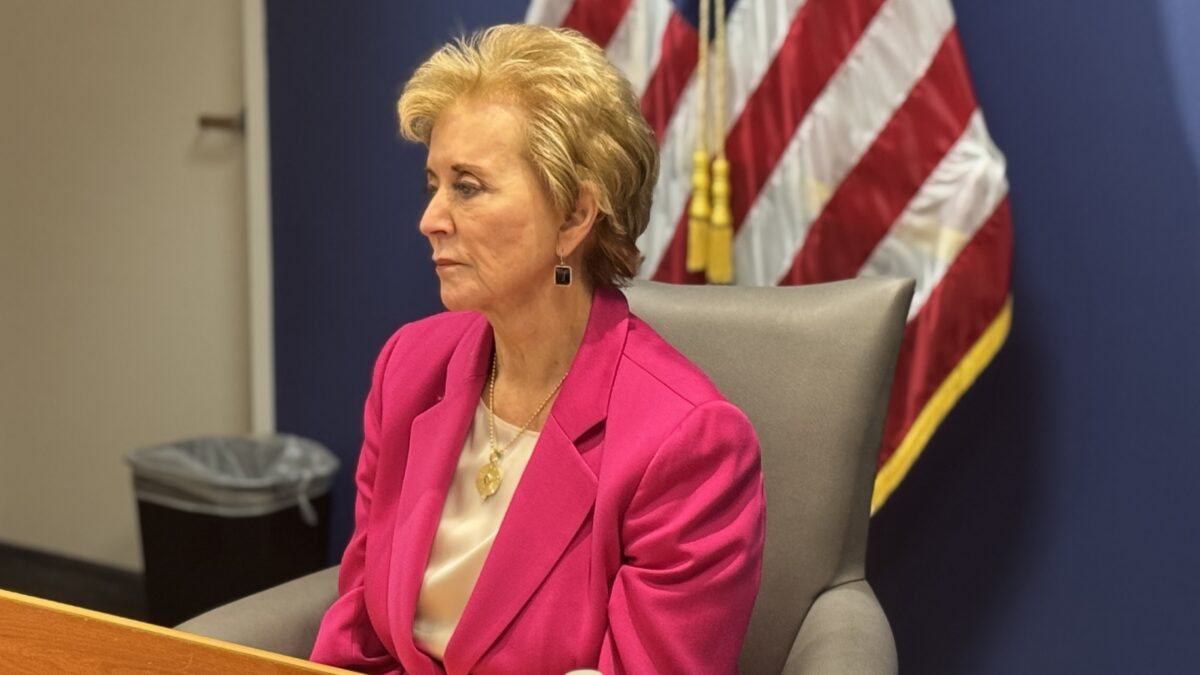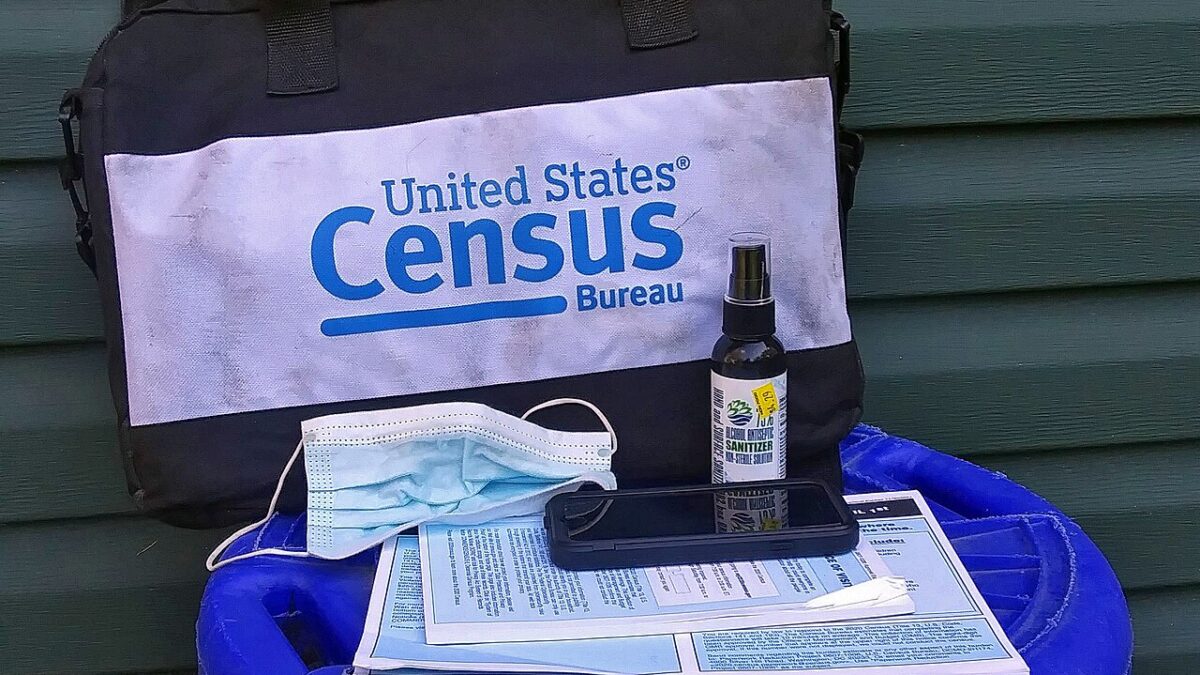Democrats largely oppose Georgia’s new election law requiring voter identification for absentee ballots because it is “racist,” but some are encouraging the creation of a “vaccine passport” despite vaccine hesitancy in black communities.
The Biden administration is reportedly working with undisclosed private tech companies to create vaccine passes for Americans to use as proof that they are immunized against COVID-19 in order to gain access to certain services that require vaccination. Some elected officials such as Florida Gov. Ron DeSantis have already taken swift action to denounce the proposed passports, citing privacy concerns and the risk that Americans will be forced to do something they oppose in exchange for participation in “normal society.”
These concerns, however, have not stopped at least 17 other initiatives by organizations such as the World Health Organization and IBM from pushing for the collection of people’s vaccination information to “return to normal” at the same time a Democrat-led outrage against Georgia’s newest election laws requiring voter IDs continues.
If you think voter ID is racist, but a vaccine passport is just fine, you need some serious help thinking through public policy.
— Rand Paul (@RandPaul) March 30, 2021
Democrats, activist groups, corporate media, and their corrupt henchmen have largely characterized Georgia’s newest election law as a “racist” push by Republicans to marginalize black voters. Provisions in the new law such as requiring proof of identification with mail-in ballots, limiting the acceptance of absentee ballots within 11 days of an election, and banning third parties using goods and gifts to appease voters at a polling place, some claim, make it more difficult for minority groups to vote.
The Republican who is sitting in Stacey Abrams’ chair just signed a despicable voter suppression bill into law to take Georgia back to Jim Crow. The Senate must pass the #ForThePeople Act and John Lewis Voting Rights Act immediately – our democracy is at stake tonight. https://t.co/xDolZO9Bf3
— Elizabeth Warren (@SenWarren) March 26, 2021
Make no mistake, this Georgia Jim Crow law and the similar ones being proposed in Arizona, Iowa dozens of other states are as much about motivating Republican voters who are downcast after the 2020 and January 2021 losses as they are about suppressing Democratic votes.
— Nope. (@JoyAnnReid) March 26, 2021
https://twitter.com/meenaharris/status/1375264012959539206?s=20
Even President Joe Biden repeatedly condemned the law as a “blatant attack on the right to vote, the Constitution, and good conscience.”
“It’s Jim Crow in the 21st Century,” Biden tweeted.
The Georgia voting law — like so many others being pursued by Republicans in statehouses across the country — is a blatant attack on the right to vote, the Constitution, and good conscience.
It’s Jim Crow in the 21st Century — and it must end.
— President Biden (@POTUS) March 26, 2021
These complaints sparked campaigns to boycott Georgia, lobbying efforts for Peach State companies to speak out against the law, and accusations that the election reforms are “unconstitutional.” Organizations such as the New Georgia Project and the Black Voters Matter Fund, both civil rights groups suing the state over the new law, cite provisions such as requiring voter ID for absentee ballots as a major hurdle to “voters who are elderly, indigent, or from minority communities.”
Contrast that with the lack of Democratic concern that a vaccine passport would disproportionately discriminate against communities with high levels of vaccine hesitancy. COVID-19 vaccine hesitancy is shrinking in the United States, but there are still groups such as black Americans that have high percentages of people who do not plan to take the vaccine. In a recent Kaiser Family Foundation poll, only 55 percent of black adults said they received or planned to receive their COVID-19 vaccine, while other groups such as Hispanics (61 percent) and whites (64 percent) were at least 6 percentage points more eager.
With no currently stated plans to accommodate those who might not be able to receive the vaccine due to other health conditions or allergies, a passport could automatically exclude people from activities or services they need or want simply because businesses require them.
This hasn’t stopped Democrats such as New York Gov. Andrew Cuomo, who often touts racial equity, from investing resources into launching a platform for vaccine passes that will determine whether people can “attend sporting events, arts performances and more.”
Today we launched Excelsior Pass, a free platform for businesses & individuals that can be used to easily access secure proof of a recent negative COVID test or vaccination.
It's a first of its kind tool to help NY fight COVID while reopening our economy safely.
Learn More:
— Archive: Governor Andrew Cuomo (@NYGovCuomo) March 26, 2021
While the White House claims to still be sorting out plans, press secretary Jen Psaki said the Biden administration wants to “encourage an open marketplace with a variety of private sector companies and nonprofit coalitions developing solutions” and “drive the market toward meeting public interest goals.”








